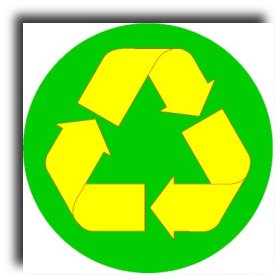 In this Harris poll, the good news is that over 75% of us report recycling something in our homes. That is great. That is a lot of materials and energy saved.
In this Harris poll, the good news is that over 75% of us report recycling something in our homes. That is great. That is a lot of materials and energy saved.
What about the 23% that don’t recycle? 15% of them say that recycling is not available where they live. If 15% of the population does not have access to recycling, then I bet we can get the total recycling rate to 87% of all households. The other 13% who would not recycle are because they think it is too hard, too complicated or because they think it won’t do any good.
I can help those who think it is too hard:
Recycle one thing that is easy to recycle. The easiest thing to recycle is paper. First off, there is no food on it. No rinsing, no bugs, no smell. I, for one, think it might be too much effort to recycle peanut butter jars or Tabasco sauce bottles since they are so hard to rinse out. Secondly, I do not open my mail in the kitchen. I open it at my desk. I have a trash can with a shredder next to my desk that only gets paper. My shredded paper, my junk mail, even my completed to-do lists go in there. And the great thing about recycling paper is that it is heavy. When I have a full grocery bag ready to go, I can feel it when I take it to curb or to a recycling place when I am out running errands. I feel a lot of satisfaction because I recycled a lot of weight. And yes, I intellectually know that every aluminum can I recycle saves more resources and more energy than any pound of paper I recycle, but there is no heft to an aluminum can.
Another reason to recycle paper for me is that I like trees. I like tall trees and woods and the wildflowers that grow underneath as well as the fungus breaking down leaves and fallen limbs. I like finding where the deer bed down at night. I figure recycling paper does not save a tree from being cut down. No, I figure that recycling paper allows trees to age before they get cut down. Does a day’s delay add a lot of growth to 100 acres of trees? I do not know, but it must add something. Every day that we cut down fewer trees, more trees grow larger. The bigger each tree gets, the fewer trees we need. And, yes, I am talking small, probably infinitesimal amounts, but compounding interest becomes a big multiplier over time. And I like thinking of trees as a savings account and not as a checking account, or at least maybe as an interest bearing checking account.






1 Comment